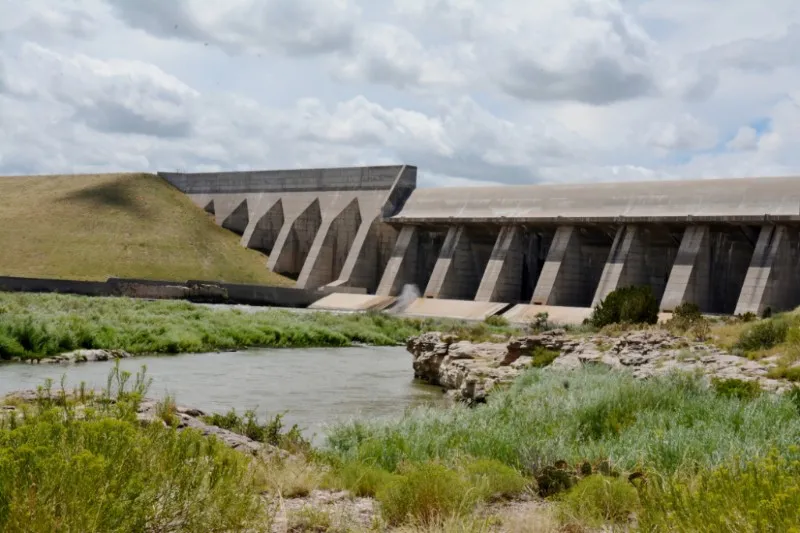
Daily Audio Newscast - July 2, 2025
© AlexLMX - iStock-823000260
Six minutes of news from around the nation.
The U.S. Senate passes President Trump's domestic agenda bill in a 50-50 vote, with Vice President JD Vance casting the tie-breaker. Columbia University agrees to pay $9 million to settle a lawsuit over misreported college ranking data, and a New Mexico university offers degrees in Artificial Intelligence.
TRANSCRIPT
The Public News Service Daily Newscast, Wednesday, July 2, 2025.
I'm Farah Siddiqui.
The U.S. Senate has passed President Donald Trump's domestic agenda bill by the narrowest possible margin, 50-50, with Vice President J.D. Vance casting the tie-breaking vote.
The package includes a wide range of policy priorities and now heads to the House, where a close vote is also expected.
In other news, Columbia University has agreed to pay $9 million to settle a class-action lawsuit from students.
They say the school submitted inaccurate data to the U.S. News and World Report, boosting its national ranking and leading to higher tuition.
Columbia said it regrets past reporting errors but did not admit wrongdoing.
And now the Arkansas Space Grant Consortium at the University of Arkansas at Little Rock will use an $800,000 NASA grant to train students in STEM education and aerospace research.
Frida Ross has more. 18 colleges and universities across the state are part of the consortium.
Director Constance Meadors says the program trains students to work for NASA as well as preparing them to work in the local aerospace industry.
We really focus on workforce development, skills development and training.
So we look to see how we can meet the needs of NASA, but also our goal is to meet the needs of the state of Arkansas.
Unlinked organizations, including one from Minnesota, are ratcheting up legal pressure over canceled federal grants.
They say projects designed to create a fair and sustainable food production system are being shortchanged.
Mike Moen reports.
The Institute for Agriculture and Trade Policy is part of a newly filed lawsuit that says the USDA, under the Trump administration, unlawfully terminated a host of grants.
The Institute's Aaron McKee says its funding was for an outreach project to elevate the voices of people in agricultural systems often shut out of farm program decisions.
The grant was for two years and McKee says they were close to finalizing materials.
We feel like this is rolling back a lot of progress towards a fairer food system.
The USDA says the grants went to programs promoting diversity, equity and inclusion and were no longer consistent with department priorities.
Artificial intelligence is expected to significantly change people's lives and New Mexico State University is meeting the challenge by offering the state's first AI degree.
The higher ed institution located in Las Cruces will introduce the state's first bachelor of science degree in AI starting in fall 2026.
College of Arts and Sciences Dean Enrico Pantelli felt AI shouldn't only be taught at Ivy League schools, but made accessible to learners in New Mexico.
He says no matter what kind of job you have, learning a bit about AI is essential.
You see a lot of students that come to college, they understand something about AI, but they don't understand how to use it properly.
So AI can be a great tool to learn.
Use AI as your companion to help you, not to replace you.
I'm Roz Brown.
This is Public News Service.
Federal Reserve Chair Jerome Powell told Senators the central bank might have already cut interest rates this year if not for the economic effects of recent tariff policies.
As housing costs continue to squeeze Ohio families, Youngstown's mayor warns that out-of-state landlords are pushing many out of their homes, undermining children's health, education and futures.
Eviction filings remained above pre-pandemic levels this June, adding pressure to families already struggling with rising rents.
Youngstown Mayor Jamelle Tito-Brown says institutional landlords are buying up homes and hiking rents, displacing families and forcing them into overcrowded living situations, or what he calls "hidden homelessness."
Corporations coming in and buying multiple properties, they're raising the monthly rent three times as much.
Now we're pushing those individuals, what we call homeless, the homeless and the unaccounted for, you know, where now I have to live with my parents or my relatives because I can't afford the rent.
A new Indiana law starting this week allows school board candidates to list their political affiliation on the ballot.
Joe Ulery reports.
Candidates may choose to register with a political party as independents or not disclose any affiliation.
Those who don't select will have a blank space next to their name.
Those opposed to the new law say it injects unnecessary politics into a role traditionally focused on education.
Leslie Jacobs is on the school board for Fayette County School Corporation in Connersville.
In my 10 years, I couldn't tell you the political leanings of anybody on my board.
It never comes up.
Our discussions are purely about educational opportunities, picking a superintendent, looking at budget.
She warns requiring party labels might discourage qualified candidates from running.
Supporters of the new law say it increases transparency.
While President Donald Trump's budget bill took another step forward Tuesday, it would end some tax credits that one Kansas manufacturer says are vital to American competitiveness abroad.
More from Zimone Perez.
Curt Nikens runs a company that manufactures electric yard hostlers, chargers and battery storage systems in Kansas City.
He explains his industrial customers use a $40,000 tax credit to help purchase his all electric yard hostlers for loading and unloading cargo.
Senate Republicans voted to cut that tax credit by September.
Nikens says EV manufacturers and renewable energy companies in general frequently compete with Chinese manufacturers who are subsidized by their government.
If we don't support clean energy from materials to manufacturing to assembly, even clean energy products all the way up to vehicles in this bill, then we are really handing dominance to China for all of that.
Policies like the EV tax credits from President Joe Biden's Inflation Reduction Act have been in the Trump administration's crosshairs.
Republican lawmakers have argued that market competition should be the driving force on which vehicles, electric or gas, people drive.
This is Farah Siddiqui for Public News Service, member and listener supported.
Heard on interesting radio stations, your favorite podcast platform.
And you can find our trust indicators at publicnewsservice.org.

















